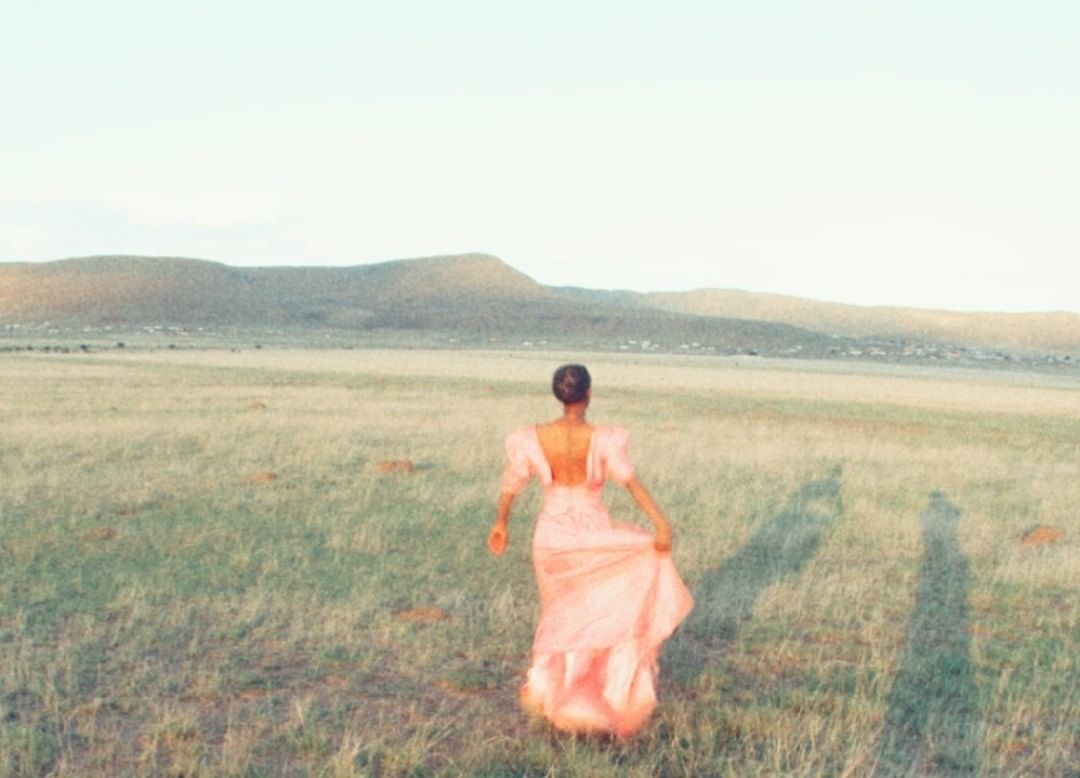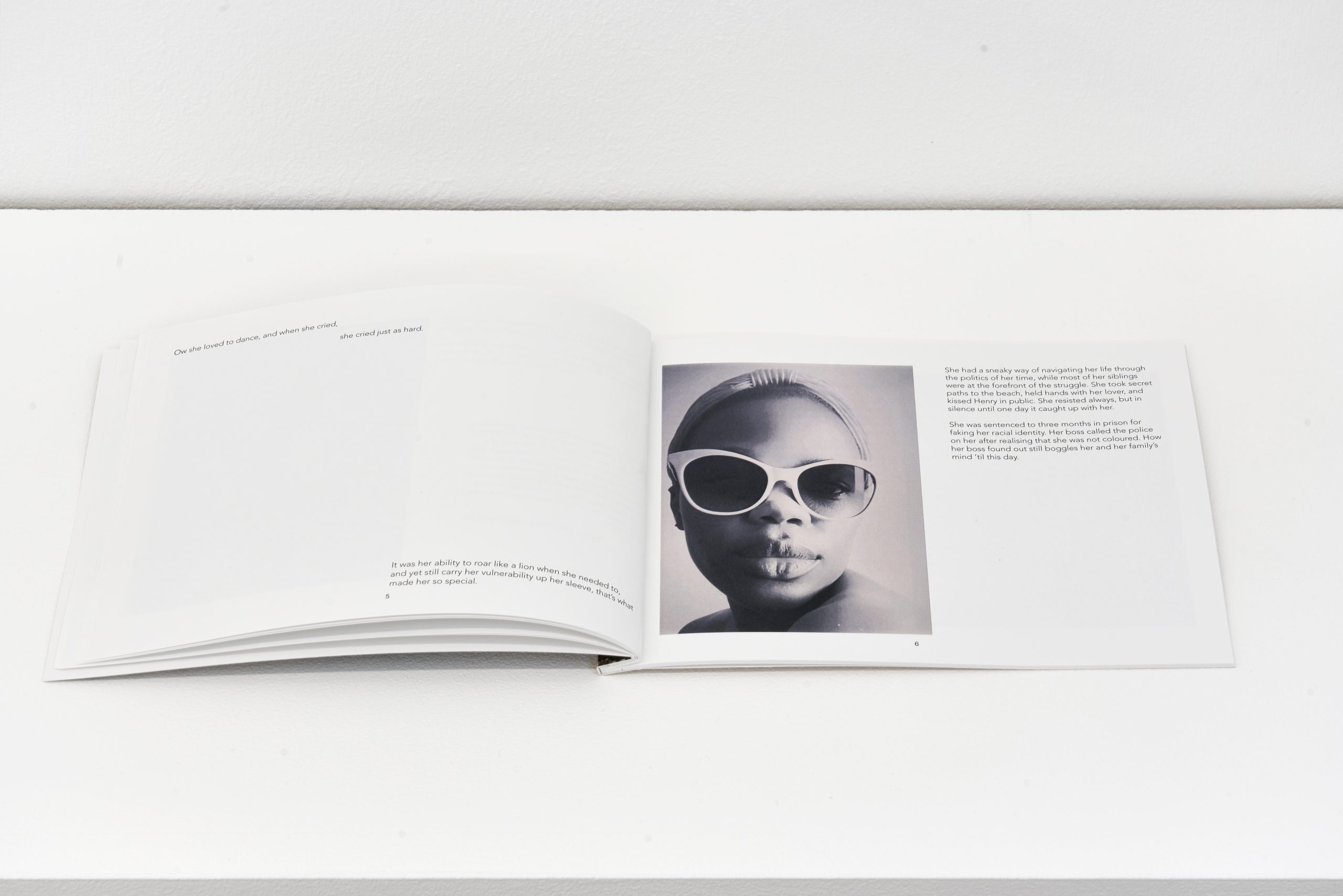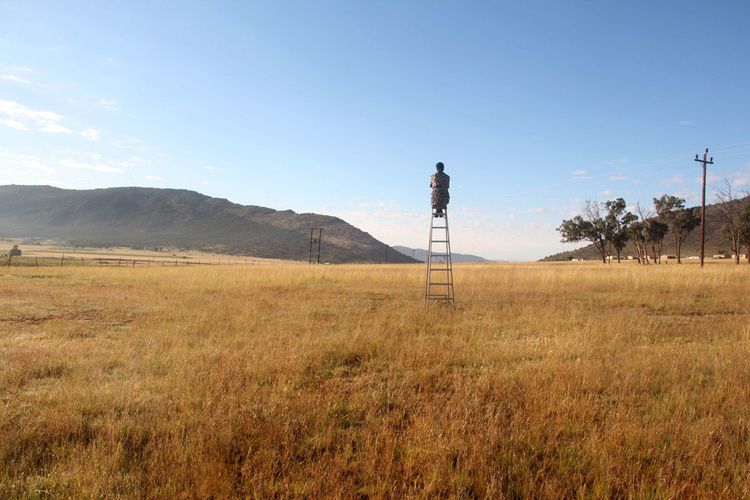“I am especially interested in how we navigate different ideas of the auntie: as bio-kin, as fictive kin, as anti-kin, as ante-kin, as employer, as older stranger, as authority figure, as someone else’s memory, as absence, and as possibility.”
— K’eguro Macharia
Through her multidisciplinary and multi-temporal project, Thandiwe Msebenzi introduces us to the story of the Radical Makazi, a character inspired by her aunt, fused with fiction and fantasy. Expressed in three chapters and presented at blank projects between July and September, the project is accompanied by a handsomely produced book narrated by the artist. Msebenzi writes based on familial stories and experiences amalgamated from several sources — creating a tension between fact and speculation. Radical Makazi reads as a love letter to mothers, aunties, sisters, and daughters — intergenerational stories of women converging through text, videos and photography.

The Radical Makazi reflects those described by theorist Saidiya Hartman as “the wayward” where waywardness is read as subversion and refusal of respectability. In her sojourns, Msebenzi’s Makazi drifts and wanders through time and space, loyal to one thing only; her desire to live her life. This desire is described by her as enjoying “a free life” and not liking to “stress myself with things.” She escapes the clutches of forced marriage, loves to dance as much as she loves to cry, makes mistakes, allows herself to change her mind and proclaims herself “a ‘can’t-get’”… the original slay queen.
The act of refusal can be read throughout Makazi’s life story, or at least in tiny fragments we are privy to — a refusal of misery, a refusal of what Msebenzi’s grandmother refers to as “hellish” situations and a refusal to being owned. But it can also be read in the artist’s mode of address.

In this project, Msebenzi is photographer, archivist, writer, and subject. She must contend with the implications of each role in the process of making. This blending and fusing produce a fluid fiction of origins and allows space for the artist (and viewers) to insert their own experiences in a process of making the self. Radical Makazi creates an awareness of the passage of time by drawing on intergenerational connections. Through the stories, we can engage in a slow dance with time where 1977 and 1982 feel as real to us as this moment.
Msebenzi’s Radical Makazi is an embodiment of what scholar K’eguro Macharia reflects on in thinking about the auntie as, “bio-kin, as fictive kin, as anti-kin, as ante-kin…someone else’s memory, as absence, and as possibility.” The role of the auntie is expansive and her impact on our lives is felt in different ways at different times. She is chaotic yet earnest… errant, fugitive, loving, anarchic, willful, impassioned, wild but above all free.




















































